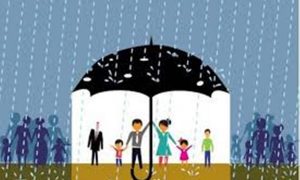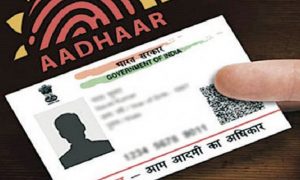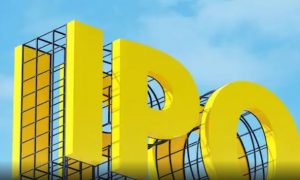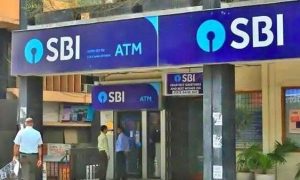New Delhi: In a significant judgment, the Supreme Court on Wednesday ruled that an educational charitable institution, society or trust can claim income tax exemption only if it is solely concerned with education or education-related activities and that it should not engage in any commercial or profit-making activities.
A bench comprising Chief Justice UU Lalit, and Justices S Ravindra Bhat and PS Narasimha said that “where the objective of the institution appears to be profit-oriented, such institutions would not be entitled to approval under Section 10(23C) of the IT Act.”
It observed, “Our Constitution reflects a value which equates education with charity. That it is to be treated as neither business, trade, nor commerce, has been declared by the pronouncement of this very court.”
Also Read :Gold ETFs vs Gold Mutual Funds: Which one to choose?
The court was interpreting Section 10(23C) of the Income Tax Act, which exempts taxation of any income received by anybody on behalf of a university or other educational institution existing solely for educational purposes, and not for the purposes of profit.
The court explained that for a charitable institution, society or trust etc., to ‘solely’ engage itself in education or educational activities, means that “the trust or educational institution must solely exist for the object it professes (in this case, education, or educational activity only), and not for profit”. It said such institutions cannot have objects which are unrelated to education. In other words, an educational institution can claim the tax exemption only when all objectives of such a society or trust relate to imparting education or are related to educational activities.
However, it clarified, “where surplus accrues in a given year or set of years per se, it is not a bar, provided such surplus is generated in the course of providing education or educational activities.”
The court was hearing appeals filed by various institutions and trusts, after their claim for registration as a fund or trust or institution or any university or other educational institution set up for the charitable purpose of education, under the Income Tax Act 1961, was rejected in 2010 by the Andhra Pradesh high court. The high court had ruled that the appellants were not created ‘solely’ for the purpose of education. The Supreme Court upheld the high court verdict and rejected the appeal.
The Andhra Pradesh high court had, in November 2010, ruled that the society was not created ‘solely’ for the purpose of education. The Supreme Court upheld the high court verdict and rejected the appeal.
But how did the Supreme Court interpret the provisions of the Income Tax law, and what does the judgment mean for existing institutions? What kind of activities could snatch the tax exemption for educational institutions? ThePrint explains.
Also Read : WhatsApp rolling out new Avatar feature for THESE users – Check details here
Can educational institutions make profits
In its verdict, the court asserted that educational institutions can have surplus or profits in any year, as long as such surplus is generated in the course of providing education or educational activities. These would include related activities such as sale of textbooks, school bus facilities and hostel facilities. If such trusts or educational institutions earn profits while carrying on these objectives, they need to maintain separate books of account.
It said that while considering applications for approval under Section 10(23C) of the Act, the authorities can call for audited accounts or other documents of the institution as well, “to ascertain the genuineness of the institution and the manner of its functioning”.
The court also clarified that while considering an application for approval for granting exemption, the authorities should confine their inquiry to the nature of the income earned and whether it is for education or education-related objects of the institution. It said that the authorities shouldn’t give “disproportionate weight” to any surplus or profits generated while imparting education or related activities, as long as they are incidental.
“At the stage of registration or approval therefore focus is on the activity and not the proportion of income. If the income generating activity is intrinsically part of education, the Commissioner or other authority may not on that basis alone reject the application,” it clarified.
Which activities are permitted
The judgment emphasized on the Constitution equating education with charity and observed, “In a knowledge-based, information-driven society, true wealth is education – and access to it. Every social order accommodates, and even cherishes, charitable endeavor, since it is impelled by the desire to give back what one has taken or benefited from society. Our Constitution reflects a value which equates education with charity.”
It observed that imparting education through schools, colleges and other such institutions would be per se charity. However, apart from that, there could be activities incidental to providing education. This would include providing textbooks, bus facilities to transport children, and summer camps for special educational courses like computer education.
However, it said that where such institutions provide their premises to others for conducting workshops or seminars or educational courses, and outsiders are permitted to enroll in such seminars, then the income generated from such activity cannot be considered as a part of education or ‘incidental’ to imparting education.
How will it impact existing institutions
The Supreme Court judgment has overruled two of its old judgments– one passed in 2008 and another passed in 2015– which had ruled that the term ‘solely’ in Section 10(23C) means ‘dominant / predominant /primary/ main’ object. The judgments had ruled that incidental commercial activities will not result in denial of exemption so long as their main object is education.
However, the Supreme Court has now ruled that the interpretation of the meaning of ‘solely’ by these two judgments are “erroneous”, and said that ‘solely’ would mean ‘only’. It ruled, “Thus, in the opinion of this court, a trust, university or other institution imparting education, as the case may be, should necessarily have all its objects aimed at imparting or facilitating education.”
This happens rarely and means that the Supreme Court has changed how the law was previously interpreted. Therefore, the court clarified that since this judgment would impact several institutions, the judgment would operate “prospectively”. This means that the institutions would be given time to make appropriate changes and adjustments, and that the judgment would not be applicable to their past conduct.
Delhi-based advocate Deepak Joshi explained that the court has “relied on the constitutional ethos of treating education as a charitable activity which is neither trade, commerce or business”, relying on its judgment in the TMA Pai Foundation case, which dealt with the scope of the rights of minorities to establish and administer educational institutions of their choice under the Constitution.
Talking about the implications of the judgment, Joshi told ThePrint, “One of the direct implications of this ruling is that all the societies & institutions operating educational institutions ought to verify their object clauses so as to ensure that the same doesn’t contain any activity unrelated to education. It shall only be exclusively for the purpose of education.”
He also pointed out that the court was aware of the fact that it is disturbing a well-settled law and has, therefore, made the ruling effective prospectively.
“Thus, pending proceedings & previous orders are not affected, thereby bringing certainty in the industry,” he added.
However, Mumbai-based advocate Gayatri Viswanathan, who works with educational trusts, feels that the judgment “is likely to have a negative impact on non-traditional education”, and that the judgment has “raised more questions than answers”.
“Institutions that provide regular schooling and after-class trade-based training for cottage industries would be in a fix since the long-standing understanding of educational purpose will now be excluded,” she said.





































